The Transcendence of the Messages of the Messenger (ﷺ)
In Islam, every aspect of human relationships is governed by virtues and values. When you look into the fundamental teachings and principles, you would come to know that almost every sphere of human life has been given respective standards to strike balance and maintain stability within the premise of human codes of conduct. In today’s world, it is indeed a major task to maintain them à la mode, when the other unbalancing and destabilizing practices are at their peak. But with the advent of the 21st century, some argued that the fundamental teachings of Prophet Muhammad (ﷺ) are not in line with 21st century parameters. This argument is wrong because the teachings of Prophet Muhammad (ﷺ) are very relevant to our lives today as they were relevant 1400 years ago. In the next few minutes, I will shed light on some of the respects where prophetic teachings relate to the contemporary world and resonate with contemporary needs.
While talking about modern trends, some of the basic concepts that strike our minds are feminism, racism, individualism, and communalism and in order to fall in the class of modern parameters, any religion or belief system, as per their own description, will have to resonate with these things. So, now lets look at some of the factors of these areas and try to check where Islam stands.
Pluralistic Society
Throughout his life, the Prophet (ﷺ) respected, advised and sought help from the non-Muslims around him and upheld a balanced and symbiotic relationship with them on the basis of common religion like trust and moral standards. As a result of such an outlook, there occurred bilateral dealings with full peace and protection among them. As it was in the first migration of Islam, Migration to Abyssinia, (الهجرة إلى الحبشة) where Najjash, the monarch of Kingdom of Aksum, did not listen to the delegation of Quraish and preferred to hear their defence and came to know the diplomatic relation of the Prophet (ﷺ) with other communities. This attitude of showing respect and listening to opposition sets of beliefs is integral to the teachings of the Prophet (ﷺ) and evident of the Prophet being a supporter of plurality and diversity. Several such events and incidents are found in his life that indeed preach the pluralistic stance of the Prophet (ﷺ) towards other communities and their beliefs.
Ethnic Values and Gender equality
In modern days, one of the burning issues that the world is surrounded with is ethnic values. In fact, every other day, there would be cases when someone is being bullied or someone else’s ethical values are tarnished. This is the reason that when the Multidimensional Poverty Index (MPI) under the aegis of United Nations Development Programme (UNDP) conducted a survey in nine specific ethnic groups, they found that more than 90% of those ethnicities were in abject poverty. If this is not an impact of abandonment of these ethnic communities, what else could be the reason?
As of ethnic values, the Prophet (ﷺ) clarified that differences in skin colour, language, nationality, race or tribe are nothing but a God-given identity. Thus, they do not represent any kind of precedence over others. Accentuating the divine words, he proclaimed:
لا فضلَ لعربيٍّ على عجميٍّ ، ولا لعجميٍّ على عربيٍّ ، ولا لأبيضَ على أسودَ ، ولا لأسودَ على أبيضَ إلَّا بالتَّقوَى ، النَّاسُ من آدمُ ، وآدمُ من ترابٍ
(There is no superiority of an Arab over a non-Arab, nor of a non-Arab over an Arab, nor of a white over a black, nor of a black over a white: except with piety, people are from Adam, and Adam is from dust) (Sharh al-Tahawi: 361).
The hadith clarifies the fact that everyone is from Adam and Eve irrespective of ethnicity or colour and thus he/she should maintain humility while dealing with others, after all, everyone has to return to dust one day. From the prophetic tradition, it has also proven that he never gave precedence to one over another, and thus everybody thought that he was the most loved one in his eyes. What better example could be that the people around you are comfortable with you and no one’s ethnic values are demolished?
So is the case of women. Islam paid very close attention to the issues of women at a point when the world treated them far more gravely than animals. Prophet (ﷺ) granted them the right of inheritance which was something beyond imagination during the irascibility (Jahiliya) era. Preaching kindness towards them, the Prophet said: "أكمل المؤمنين إيمانا أحسنهم خُلقا، وخياركم خياركم لنسائهم"
(The believers who show the most perfect Faith are those who have the best behavior, and the best of you are those who are the best to their wives.) (Riyad as-Salihin 278/34).
Poverty Eradication Programmes
Moving forward, something that the society is craving for all day long is economic freedom. This is a problem that no specific religion has emphasized, and the worldly principles failed in front of this issue, having no proper solution. In due course, Islam has never declared it null and void, rather, paid pervasive attention to its attendance and encouraged followers to get as well as help others too to be free from economic burden.
In economic sector, the prophetic teachings designated a claim to a specific share of the wealth for the needy ones saying:
خَيْرُ الصَّدَقَةِ مَا كَانَ عَنْ ظَهْرِ غِنًى، وَابْدَأْ بِمَنْ تَعُول
(The best charity is that which is practiced by a wealthy person. And start giving first to your dependents.) (Sahih Bukhari: 24/1426).
This concept is lacking in the contemporary world, as a result, the richest 2% of the world’s population own half of the world’s wealth while the rest half, lives on less than 2 dollars a day as World Poverty Statistics shows. On the ground of giving this charity to the dependents lies one of the major philosophies that while handing it over to relatives, one’s hands would not shiver, and thus he would prefer to pay it without hesitation. After doing this time and again, he would be habituated and thus pay anybody nearby in case the dependents are in a no more needed state. With this technique, no one in society would remain poor.
Here, you must be puzzled sometimes that there are thousands of philanthropists in the world donating to charity even when they are not Muslims. Well, it is true in its aesthetics, but one more thing that we need to pay attention to is that this donation by these people is not compulsory, and thus those who are interested in these kinds of things are the ones who prefer to do them. But the case with Islam is not the same; every deserving candidate would have to contribute something to the needy as per the governed amount of Islam. In this way, Islam plays a major role in eradicating the social poverty that backward societies are looking forward to having and in a few more years to come, it is quite possible that the world organizations like World Monetary Fund and United Nations will put them into practice or include them in the Sustainable Development Programmes respectively.
Downtrodden groups in the society
But sometimes giving charity would not work well in society. Because, sometimes even after paying the obliged amount, there would be people who would be deprived of their basic rights like food, cloth, shelter, etc. In this case, Prophetic teachings didn’t turn blind eyes or deaf ears to their issues but paid them as important attention as any other high-profile personnel of the community. This is the reason that one of the earliest instructions of Prophet Muhammad is “feed the poor” glorifying the status of downtrodden in the society. Upon asking the best traits in Islam, the Prophet (ﷺ) replied:
أيُّ الإسلامِ خيرٌ ؟ قال : تطعم الطعامَ، وتقرأ السلامَ، على من عرفتَ ومن لم تعرف
(Which Islam is better? He said: You feed the food, and you read peace to those you know and to those you do not know) (Sahih al-Nasa'i: 5015)
In many other hadiths, these things have vividly been mentioned. Even in the case of cooking broth, the Prophet asked the neighbour to take good care of another neighbour and share something out of it. In this way, the neighbour would never feel abandoned and always feel attached to people and their dealings. This is what the modern thought of school says that the world is a family, and we need to take care of them, especially in their bad times.
Environmental Care
Along with these, the Prophet showed a high admiration and respect for nature, its resources, and other living creatures, which is indeed the concept of environmentalists these days. Let’s take the concept of water conservation, for instance, which is not a new concept, and thus the presence of this concept in religion or belief systems is indeed out of the blue. But this concept has always been there for the last 1400 years.
On water conservation, he asked Sa’d ibn Abi Waqqas to perform wudu (ablutions) with moderate use of water. On another occasion, the Prophet Muhammad (ﷺ) clearly mentioned:
كل واشرب والبس وتصدق في غير سرف ولا مخيلة، فالمؤمن مأمور بالاقتصاد في كل شيء منهي عن الإسراف في كل شيء، حتى الماء حتى في الوضوء والغسل يقتصد
(Eat, drink, dress and give alms without extravagance or imagination, for the believer is commanded to be moderate in everything and forbidden to be extravagant in everything, even water, be it in ablution and washing.) (Al-Amali al-Mutlaqa: 32).
In those days, this was the only factor destabilizing the society and creating a ruckus, and thus this has been brought up on multiple occasions in hadith clarifying its meaning and significance in the society. The factors that we talk about today while discussing environmental issues are of no old history; they have been recently introduced by scientists a few decades before.
Conclusion Note
Thus, to say that the prophetic teachings are of no use these days and they are conservative in terms of practice as well as belief would be quite hypocritical and unjustifiable. In fact, it has also been seen from the teachings of the Prophet (ﷺ) that there are some of the teachings still in an ambiguous manner that are still to be deciphered in upcoming generations and the ones which are already, in essence, to practice them no matter what. May Allah bless us to learn the truth and spread it everywhere: Ameen.
References
[1] Hameed, Shahul. “The Prophet's Teachings in the 21st Century.” About Islam, 12 November 2016, https://aboutislam.net/counseling/ask-about-islam/the-prophets-teachings-in-the-21st-century/. Accessed 7 October 2022.
[2] Hussain, Dr. Musharraf. “How relevant is the Prophet Muhammad ﷺ today?” Dr Musharraf Hussain, 22 January 2015, https://www.musharrafhussain.com/how-relevant-is-the-prophet-today/. Accessed 7 October 2022.
[3] SAIGAL, BASHARAT. “Prophet Muhammad: Role Model for the 21st Century.” Light of Islam, 25 July 2021, https://lightofislam.in/prophet-muhammad-role-model-for-the-21st-century/. Accessed 02 October 2022.
[4] Uktu, Ahsen. “The Message of Prophet Muhammad to the 21st Century Ahsen Utku.” Lastprophet.info, 29 September 2010, https://www.lastprophet.info/the-message-of-prophet-muhammad-to-the-21st-century. Accessed 7 October 2022.
About the author
Sirajuddin Shaikh is a Degree Final Year Student at National Institute for Islamic And Contemporary Studies (Niics) in Darul Huda Islamic University.
Disclaimer
The views expressed in this article are the author’s own and do not necessarily mirror Islamonweb’s editorial stance.

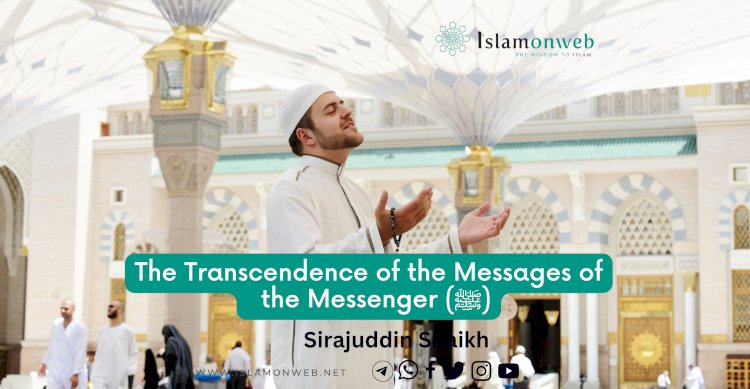


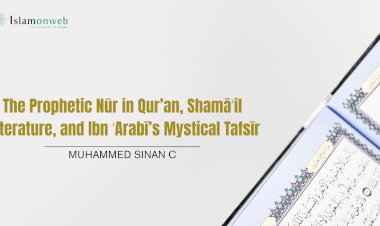
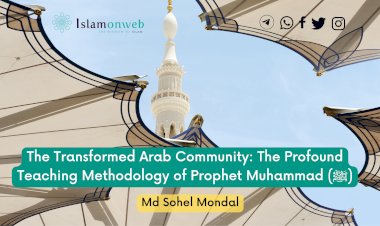

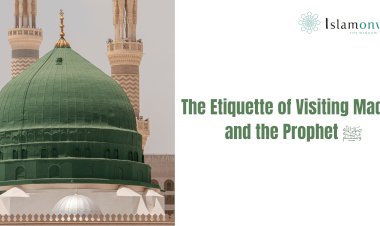
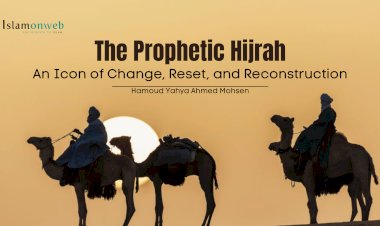
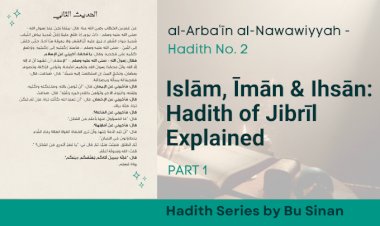














Leave A Comment